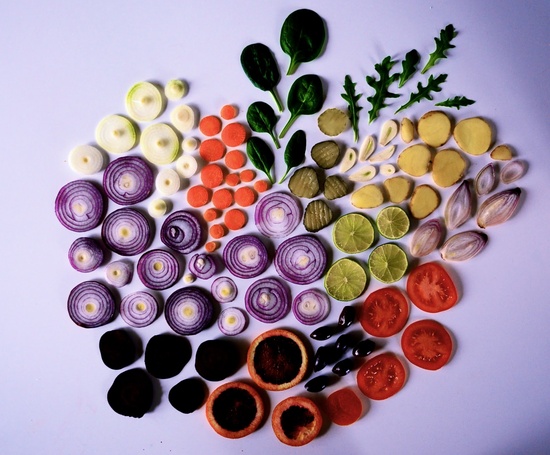
8 Lessons on Showing Love (From the Book “The Five Love Languages”)
We are all born unique. Each person we meet have differing personalities and varying likes and dislikes. Even in the midst of being raised in the same environments and genetically alike such as the case for identical twins — we still develop very different personalities. Perhaps our personality comes from our soul? Is it any wonder that each one of us show and perceive love differently?
Dr. Gary Chapman wrote “The Five Love Languages” addressing the idea that all of us perceive and express love differently. Dr. Chapman states in his book that people feel and communicate love in various ways. We need to understand the people around us and the “love language” that they are speaking. Do you know your main love language? Do you know your significant others?
Here are 8 lessons that we can learn from Dr. Chapman’s amazing book.
1. Words of Affirmation (Love Language #1)
People whose dominant love language is “words of affirmation” feel and express love through verbal expressions. There is a great need to hear and say “I love you” in order to feel love. People with this dominant love language need to hear words of love.
We are too busy in the humdrum of life that we forget how a few simple words of affirmation and appreciation can create a great impact not only to ourselves but to the people around us. Mark Twain wisely stated, “I can live for two months on a good compliment”.
There is sheer power in compliments that come straight from the heart. Offering compliments and words of appreciation elevates us and the people that we compliment. Saying simple statements such as “I appreciate you doing this for me” or “You look great” can brighten up someone’s day.
If your significant other (or someone you like) has “words of affirmation” as his or her main love language make sure you show words of appreciation and love to show them that you care.
2. Learn How to Spend Quality Time (Love Language #2)
Spending quality time is more than just being physically close to someone. It is about concentrating our energy to one person. Typing away on our smartphones while our friend is speaking to us is certainly not spending quality time. It’s important that we completely focus on the people we are spending time with.
In this day and age, we are all about multitasking and doing things on the go. We may spend hours with someone but at the end of the day may have only spent a few minutes of quality time with them because that’s how long we were able to give them our undivided attention.
Having focused conversations is essential to a healthy relationship. It requires LISTENING. When we listen more than we speak, we strengthen the quality time we spend with the person we love. Our loved ones are sharing their experiences to us: their desires, their hopes and fears — we must listen and become emphatic to their situations by listening.
A person with “quality time” as their main language will need someone who will make the effort to spend time with them. That can include giving your attention to them, doing activities together, and so on. They will treasure spending celebratory moments with you such as holidays or anniversaries. Learning to talk the “quality time” language can improve our relationships with our friends and loved ones.
3. Giving or Receiving Gifts Can make a Difference (Love Language #3)
The “receiving gifts” love language should not be mistaken for materialism.
 A person whose love language is “receiving gifts” attribute this expression as signifying affection. Also, “gifts” does not always equate to ‘stuff’ we have to buy in the mall (as the days of advertisements and consumerism is at hand). Gifts can be something we make ourselves, something we find, or have already.
A person whose love language is “receiving gifts” attribute this expression as signifying affection. Also, “gifts” does not always equate to ‘stuff’ we have to buy in the mall (as the days of advertisements and consumerism is at hand). Gifts can be something we make ourselves, something we find, or have already.
In the days long gone, there was such a thing as “courting” someone. A man who shows interest to a woman would often give her flowers he picked on his way to her home. This in itself is a perfect expression for someone whose main love language is “receiving gifts”.
If this is your main love language you can relate to the beautiful story of “The Gift of the Magi“. It was a story of a couple on Christmas day having no money made amazing sacrifices to give each other gifts. The story itself had a very unexpected ending (I recommend reading it :). This is the type of love that is represented of giving and receiving gifts. We should learn to think of gifts less so in a material way and more so in an emotional way. When we give gifts to each other it comes from the heart.
4. Acts of Service Show Support (Love Language #4)
The “Acts of Service” language is the idea of performing service as a way to show kindness, compassion, and affection. It can mean doing various chores around the house or workplace as an expression of support. Doing service for someone can often exhibit respect and a sense of community.
People whose main language is “act of service” take it to heart when someone shows them support by offering their service. That service does not need to be something big, it can mean helping them on things they often do for themselves. A person with this love language will perceive this as a sense of support and comfort.
Acts of service is a really great lesson to learn because it shows our affection by performing acts of goodwill for sheer kindness. When we volunteer to do something for someone like teaching them or helping them with some specific labor, we elevate their sense of belonging and establish ourselves into a loving community.
5. The Need for Physical Touch (Love Language #5)
When we hold someone or touch someone, it is a way of showing affection and comfort. The need for physical touch is a tremendous example of love and survival. In the 1940’s Dr. Rene Spitz could not understand as to why babies under his care were dying even though they received nutrition and in a sterile environment. Decades previously this was also observed in many orphanages where babies died with no apparent reason. After tremendous research the incident was later observed by Harry Harlows (see monkey studies) — the finding was that babies were dying due to a lack of touch. Touch is an important love language that without it we cannot survive.
The “need for physical touch” is a very human language. People with this dominant love language have the need for physical touch to be able to get a sense of care and love. This does not have to be anything sexual and it can be as simple as a hug or a kiss.
Physical touch is often an incomparable form of communication. For those of us who speak this love language, the lack of physical touch can break a relationship. A simple pat on the back or a touch on the shoulder can go a long way to make someone feel loved and admired.
6. Find out your Love Language.
Before you go on to figure out what love language works for others, you have to decide what love language you prefer.
To find your love language start by observing your personality and what makes you feel loved. Think of the times you felt truly loved by your family or significant other. Was it that time you were hugged by your mother, or the time your significant other said “I care for you,” or the time your Uncle brought you presents, or a friend spent time with you?
Observe which of these love languages speak to you. In most cases you prefer a certain love language for different types of relationships you have in your life. Most importantly tell your loved ones that you feel “loved” when they do these things, start with appreciation.
7. Use the Love Language to Express Love to your Loved Ones
After knowing your love language, learn what love language each of your loved ones speak. Exercise expressing them often. When we express love we deepen our relationships. These universal love languages ensure that we communicate with people that we love and care for. If we continually express love, we build deeper and more meaningful relationships with our loved ones and it can lead to a more fulfilling life.
8. Learn to be selfless when expressing these Love Languages
Now that we have learned the 5 Love Languages we need to apply it in our life. It is important to remember that we have to be selfless when using any language of love. We need to continually learn our love language and in addition that of the people we care for and make sure we express them often.
We should be selfless and use the love languages to try to communicate our love for the people around us. Whether it’s about appreciating someone through words, or spending quality time, giving gifts, or hugging someone — selflessness is an important factor to learn and express the 5 Love Languages.
Thank you for reading this article and I hope you apply the 5 Love Languages to express and show love to everyone you meet.
Namaste :).












